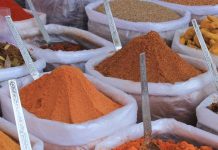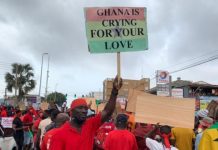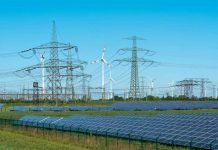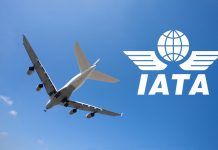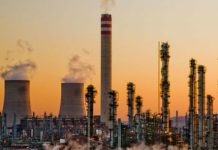According to the most recent information acquired from the National Oil Spill Detection and Response Agency (NOSDRA, Nigeria experienced losses of 21,291.673 barrels of oil, or 3,364,084.375 liters, as a result of spills in 2020.
Compared to 2019, when 42,076.492 barrels of oil (6,648,085.706 liters) were spilled, this indicated a 50% decrease.
Despite pointing out that there were a number of possible causes for the spill, NOSDRA claimed that sabotage and theft were primarily to blame.
The organization reports that most of the leak in 2020 was recorded in February, when 6,327 barrels were lost. This was followed by January, which saw 4,676 barrels lost, and July, which saw 2,174 barrels lost, took third place.
1,815 barrels of spills were reported in August, 1,596 barrels in April, 1,262 barrels in June, and 1,815 barrels in August.
There were 846, 572, 401, 321, 235, and 229 barrels of spills in December, November, October, September, May, and March, respectively.
Unexpectedly, with 9,148 barrels, February also had the greatest spill in 2019; this was followed by June with 6,404 barrels, while January came in third. with 5,559 barrels.
September, March, May, and December recorded 1,113, 1,015, 993, and 879 barrels, respectively, whereas November, August, July, October, and April had 4,113, 2,620, 1,978, 1,338 and 1,230 barrels, respectively.
The biggest number of oil barrels that happened because of operational problems was in March (323 barrels), followed by May (235 barrels), and November (116 barrels).
There were 92 and 45 barrels in July and February, respectively, and 40 barrels in January and October.
Additionally, there were 37, 10, 8, 2, and 0 barrels in April, September, June, December, and August, respectively.
Coincidentally, March also experienced the biggest amount of spilled barrels in 2019 with 2,179, followed by September with 1,452 and May with 610.
While October, December, June, and January reported 51, 33, 30 and 1 barrels, respectively, February, May, August, July, and November recorded 417, 237, 265, 145, and 123 barrels.
Companies
Around 24 companies were responsible for around 370 publicly accessible oil spill data in 2020, according to NOSDRA.
The Nigeria Agip Oil Company, NAOC, came next with 35 spills totaling 695 barrels. Seplat Petroleum Development Company had 21 spills with a reported volume of 95 barrels, compared to Eroton Exploration and Production’s 21 spills with a reported volume of 4,412 barrels.
While First Exploration and Development Company, ND West, and Chevron had 12 spills (62 barrels), 10 spills (1,490 barrels), and 9 spills (2 barrels), respectively, Heritage Oil Limited had 19 spills totaling 378 barrels.
Six leaks totaling 47, 83, 11 and 143 barrels each were reported by Enageed Resources Limited, Nigerian Petroleum Development Company, Platform Petroleum Limited, and Mid Western Oil & Gas Company.
Five spills of 430 and 83 barrels each were reported by Aiteo Exploration and Production and Total Exploration and Production.
Despite having 0 barrels reported in their names, Mobil Producing Nigeria and Nigerian Pipelines and Storage Company experienced four and seven spills, respectively.
There were two spills reported by Pan Ocean Oil Corporation, Guaranteed Petroleum Limited, and Addax Petroleum, each valued 20, 8 and 0 barrels, respectively.
There was one spill at each of the following companies: Esso Exploration and Production Company, Neconde Energy Limited, Kamlik Nigeria Limited, and Infravision Limited, worth 0, 13, 3, and 38 barrels, respectively.
Causes
In addition, NOSDRA explained that accidents, vandalism, aging or badly maintained infrastructure, and other situations could lead to oil spills.
Oil is stolen from pipes here and transported to domestic or foreign markets. When camps in the mangrove refine crude for local or other requirements, there has also been a surge in artisanal refining.
These are not controlled and can seriously pollute the environment.
Penalties
According to NOSDRA, Nigeria has no enforceable regulatory fines or punishments for oil spills.
Currently, oil firms must pay for each spill’s cleanup and typically compensate the impacted local communities if the leak was their fault.
In a recent court case concerning frequent oil leaks in the Bodo region of Ogoniland, it was argued that failing to sufficiently safeguard pipelines from theft or vandalism or continuing to run when theft or vandalism is rampant implies responsibility on the part of the pipeline operator.
Challenges
In addition, NOSDRA warned that corruption and other problems with reporting and cleaning up oil spills exist in Nigeria. security.



